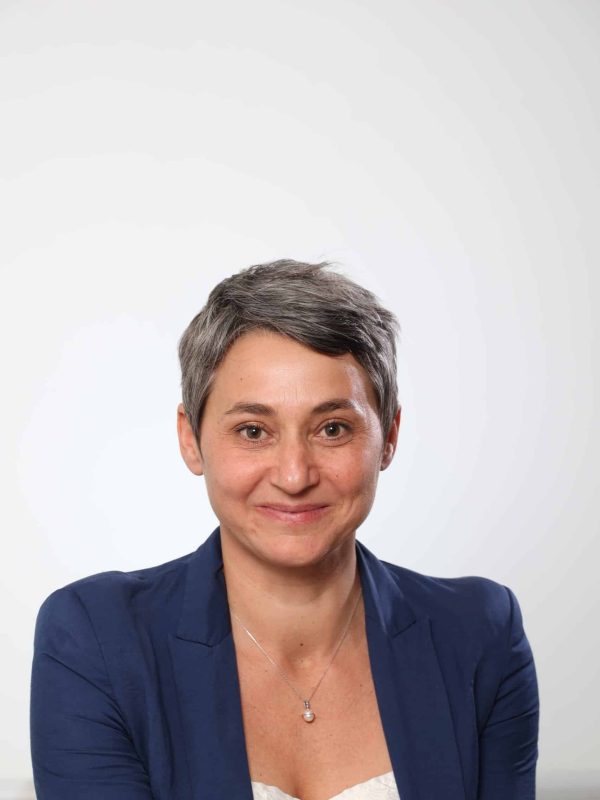The French EcoNeighbourhood framework has recently been renewed. Discover the main updates and the international prospects of the label through this joint interview between Bruno Bessis, Sustainable City Advisor at DGALN (French Ministry of Ecological Transition and Territorial Cohesion), and Anne Vial, Project Director at Cerema (the French public agency for developing public expertise in the fields of urban planning, regional cohesion and ecological and energy transition).
SCbF – Can you explain the approach behind this update and the main changes?
BB: It was a request to renew the EcoNeighbourhood process and the EcoNeighbourhood framework. For the EcoNeighbourhood framework, it was a natural progression since the framework has evolved over its ten years of existence. It has been updated based on changing contexts and what we have learned ourselves along the way, particularly through the working groups organized over the years.
Regarding the process, the objective of the renewal was to be even closer to elected officials, to understand their expectations, and to disseminate as widely as possible. This way, we can have a more audible and visible discourse to better meet the needs of territories. To achieve this, we proposed strengthening support in the upstream phase when projects can still evolve and improve, with engineering and financial assistance. We also introduced the “EcoProject” designation for unfinished operations (replacing the former “stages 1 and 2”) to give more strength to the EcoNeighbourhood label, which will be awarded to completed operations (delivered EcoNeighbourhood label and lived EcoNeighbourhood label).
There is also an international ambition, which is to share this vision of sustainable cities and neighborhoods, to be as close as possible to all territories regardless of their context (whether a small or large municipality), and to provide support throughout the entire operation.
AV: Cerema has been supporting the Ministry for many years by providing assistance and expertise on the EcoNeighbourhood approach. In the context of renewing the approach, Cerema contributed to framing the transformations. In particular, it defined the indicators related to performance and evaluation approaches and contributed to the revision of the updated framework to consolidate and accelerate responses to the challenges of ecological transition. Cerema will also assess projects within the renewed certification process and continue to provide direct support to municipalities (15 per year) in the upstream phases of projects, now called “EcoProjects”, starting this year.
SCbF – The label is also being deployed internationally. What are the Ministry’s objectives in spreading the label and how is Cerema involved?
AV: Cerema deploys its experts and expertise in France, Europe, and internationally for ecological transition and territorial cohesion. In any country, it is a preferred partner for institutions and companies in implementing sustainable development of territories for the well-being of populations. As a privileged partner of the Ministry for the EcoNeighbourhood approach and as an expert in sustainable cities, it seemed appropriate to engage Cerema in the international deployment of the approach. This contribution is part of a broader strategy to position Cerema on sustainable cities in Europe and internationally through various missions such as training, expertise, and support for urban public policies. This mission on EcoNeighbourhoods is carried out in collaboration with SCbF as our international action aims to promote French public expertise in line with different spheres of actors.
In terms of geography, the projects currently underway are linked to opportunities arising from requests from the countries themselves or from French actors internationally (AFD, Expertise France), working in tandem with the Ministry of Ecological Transition and Territorial Cohesion (MTECT) to promote French public action on these themes:
- A first mission on EcoNeighbourhoods was carried out in autumn 2022 in Japan to assess the final stage (formerly stage 4) of the certification of the EcoNeighbourhood Morino City in Funabashi, a suburb of Tokyo. A visit and exchanges with local stakeholders allowed us to understand the specificities of urban development in Japan, particularly the emphasis on collective living, and the label was awarded at the end of 2022.
- Technical assistance related to both EcoNeighbourhoods (EcoBarrios) and Sustainable Construction in Costa Rica, in collaboration with Costa Rican stakeholders such as the Ministry of Planning and Housing and the National Institute of Housing and Urbanism.
- Contribution to a delegation in Poland in late November 2022, organized by Sustainable City by France with the support of the Ministry of Ecological Transition and Territorial Cohesion (MTE-CT) and the Ministry of Europe and Foreign Affairs (MEAE), as well as the support of the French Embassy in Warsaw. The theme was “Sustainable Cities: Franco-Polish dialogue on sustainable strategies by 2050,” which allowed the presentation of Cerema’s expertise and tools to address climate challenges, particularly in the areas of EcoNeighbourhoods, nature in the city, public spaces, and circular economy.
→ Some of these missions are ongoing, while others are planned for 2023.
BB: The most appreciated aspect by international delegations and abroad is not creating a model for EcoNeighbourhoods. When presenting the EcoNeighbourhood framework, the discourse always explains that this approach is completely adaptable to the context since its fundamental principle is to ask questions rather than provide answers. That’s where the strength of this approach and framework lies: pushing project leaders to ask themselves questions and encouraging them to provide ambitious and contextualized answers based on lifestyles, culture, climate, etc.
This approach works well internationally, and what we are learning as we progress is that this thinking framework, which we didn’t know in advance, works whether we’re in a small African village, a Japanese city, or in Colombia or Mexico. In other words, the four dimensions and the 20 commitments generally resonate regardless of the context.
We have at least 10 countries interested in the approach today. As for labels, there aren’t that many yet. The objective is not to have dozens of EcoNeighbourhoods internationally that we couldn’t follow anyway. What is important for us, and this answers your question, is to ensure that with a few EcoNeighbourhoods on all continents, in all contexts, we share a vision and encourage these countries to develop their own strategies and tools to support territorial transformation. It also allows us to confirm that we are on the right track since we are able to share it. So, the great interest for France is to share a vision and consolidate this vision. On a more political level, it is about continuing to position France as one of the most advanced countries in terms of sustainable development – in terms of organization, public policies, financial commitment (with all the plans we are implementing), methodological tools, and support for local authorities. All of this is built around a shared vision because it works in all countries.
SCbF – What are the results and prospects for the EcoNeighbourhood label internationally?
BB: The countries we are working with on this approach are (with some variations each time):
- Countries with an existing label (even if sometimes it’s only at stage 1): Japan, Mexico, Colombia, Senegal.
- We are making good progress with Tunisia, Morocco, Costa Rica, and European countries (Romania). We are also continuing to advance with Poland.
- I haven’t mentioned Cameroon, which also seems to be interested in the approach.
Among our prospects, it is really about continuing to share this vision of sustainable cities and EcoNeighbourhoods, ensuring that we are on the right track and enriching our own policies with the experiences of these other countries. It is also about achieving coordinated action. This conviction of ecological transformation or transition: if we only do it in France, it won’t change anything in terms of climate change. It is all territories that need to evolve, in France and internationally. If we can contribute by sharing this EcoNeighbourhood tool, this method, and this way of envisioning and projecting, it is our role to do so. The future is about continuing to share, disseminate this vision, and continue to enrich ourselves through these exchanges.
AV: For Cerema, the goal is to continue and consolidate its expertise in sustainable cities internationally by defining a strategy consistent with SCbF’s and the Ministry’s strategies. Continuing support from ministerial bodies and local authorities on EcoNeighbourhoods is a priority, in synergy with its support, research, and innovation strategy for territories and European and international bodies. At the European level, Cerema is supporting the French Embassy in Romania in a competition for good practices in sustainable cities targeting Romanian local authorities, starting with defining objectives and providing training to the authorities. Therefore, in terms of prospects, Cerema aims to strengthen partnerships and structure its support to contribute, through its tools and feedback, to the development and dissemination of more virtuous practices in the field of sustainable cities.
Find out more :













